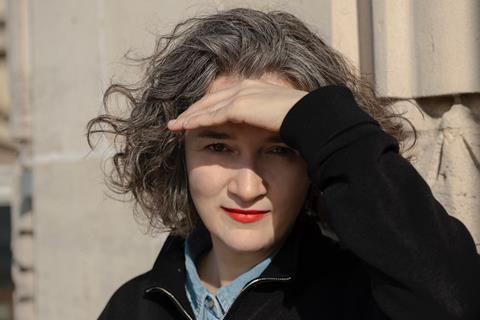
International documentary festival Visions du Réel, now in its 56th edition, runs April 4-13 in Nyon, the Swiss town on the shores of Lake Geneva.
Alongside CPH: Dox in Copenhagen in March and International Documentary Festival Amsterdam (IDFA) in October, Visions du Reel I is long established as one of the key international events for the feature documentary sector.
This year it is screening 129 films, from a monumental 3,437 submitted. Among the top international names in town will be UK filmmaker Asif Kapadia, who will be introducing a 10th anniversary screening of his Any Winehouse documentary Amy, and Haitian auteur Raoul Peck, who will receive the Prix d’Honneur.
Notable titles receiving their world premieres include Polish director Tomasz Wolski’s The Big Chief, about a Second World War hero who fell foul of the Communist government, and the Oscar-nominated Swiss director Christian Frei’s opening film Blame, an exploration of the origins of the Covid pandemic that asks why scientists across the world are coming under so much political pressure.
The industry programme, under the aegis of Alice Burgin, includes the VdR pitching showcase. the VdR works in progress and Swiss Films previews. It offers lucrative cash prizes headed by the €20,000 Eurimages coproduction development award, while The Party Film Sales and Lightdox awards are both worth €3,000 in cash for projects with the most international potential.
Artistic director Emilie Bujès is in her eighth edition at the helm of Visions du Reel. “It’s quite a crazy life, this festival life,” she tells Screen. “ I will do it as long as I feel I have the energy and enthusiasm to do it.”
Why have you chosen Christian Frei’s Covid-themed Blame as opening film? Is it important to have a Swiss director to launch the event?
I find it quite relevant ideologically to open with a national film. Then it’s Christian Frei, with whom we have had a connection for many years. It’s also interesting for me that he is Swiss-German. From the outside, it’s hard to imagine but, although Switzerland is very small, it is quite compartmentalised.It’s interesting for us on the French side to be tightly connected to the German side.
I think the film has a very good profile for an opening film. It will speak to the audience…It’s a film that goes way beyond Covid. It is really about the relation that science can have with politics and what has happened with Trump and Kennedy Jnr.
What are the key themes of this year’s festival?
Our main aim is always to look for the greatest variety possible. Each year, we do see things but it’s also difficult to be very precise about that. But this year I will say we had more films that had to do with science, for instance, or with nature, that are spread across the whole programme.
There is Jem Cohen’s Little Big And Far, in International Feature Competition; Messengers [by Jeffrey Zablotny] in medium- length competition; Wider Than The Sky by Valerio Jalongo in the national competition; and The Cosmic Microwaves Background [by Robin Touchard) in Opening Scenes.
On top of that, we have all the usual topics that are always recurring with a lot of [films about] migrations, wars, family stories.
And you have the world premiere of a new Sergei Loznitsa short, Palaeontology Lesson, about children in Kyiv going to a Natural History museum.
It’s a marvel. He knows a way of capturing something extremely simple but extremely eloquent. Those kids are visiting the museum and you can feel war in the background.
How easy is to decide which films go into the international competition and which are in the Burning Lights, which has a lot of exciting world premieres?
I cherish all the films that we have selected but more and more filmmakers and teams are aware Burning Lights is a place that is a bit more adventurous, a bit more contemporary, a bit less narrative.
Your three main guests Raoul Peck, Corneliu Porumboiu, and Cláudia Varejão, are all from very different backgrounds. Is this deliberate?
Raoul Peck is very politically committed, telling those alternative stories tightly related to his own biography. Next to him, Corneliu Porumboiu is very humorous which I always love. It is great he is able to produce films that are also funny, in this, case diving into the history of his country [Romania] after the fall of Ceaușescu, so it’s also political.
Cláudia Varejão is somebody close to the festival. We have presented several of her films. She is someone very sensitive, looking at gestures, looking at bodies, she is a photographer as well, and with a queer interest.
You received almost 3,500 entries, a record number. Is that inspiring or daunting, and why do you think are so many films being submitted?
It is joyful to see so many people are still making films and are still resisting because basically we know there are [funding] cuts everywhere and those films are not produced with a lot of money.
It is a form of resistance that in current times I find reassuring and full of hope.






![The Brightest SunScreen[Courtesy HKIFF]](https://d1nslcd7m2225b.cloudfront.net/Pictures/274x183/3/5/0/1448350_thebrightestsunscreencourtesyhkiff_312678.jpg)


















No comments yet